A Cal State dean groped two colleagues. ‘Retreat rights’ made him unfireable.
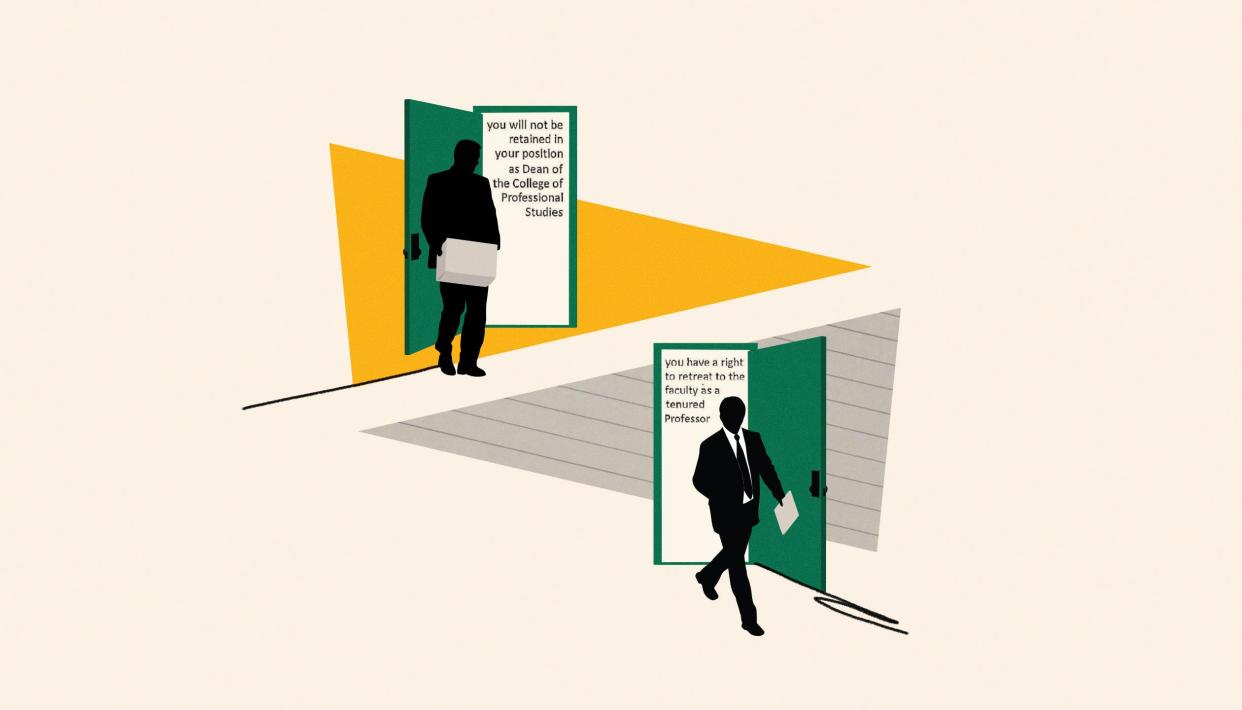
In 2016, California State University's Humboldt campus fired a dean after determining he groped and tried to forcibly kiss two female colleagues.
Back-to-back investigations found evidence of four such incidents, one of which was corroborated by an eyewitness.
The dean, John Lee, denied the allegations but lost his appeal. His office was emptied. But that was not the end of Lee's time at the nation's largest public university system.
Less than six months after his firing, Humboldt leaders reinstated Lee as a tenured professor making the maximum salary in the college he once led, in a predominantly female department, as part of the same faculty as the women he was found to have groped.
Lee's career was salvaged, a USA TODAY investigation found, by a clause in his contract known as "retreat rights" that guaranteed him a parachute should he violate university rules.

Retreat rights are supposed to provide a safety net for professors who leave tenured jobs for "at-will" administration posts, such as dean and provost. Administrators who have them can return to the faculty at any time if a new president cleans house or the role is a bad fit.
CSU leaders have liberally awarded retreat rights to high- and low-ranking administrators for years, including as a job perk to recruit executives. They are so common that a longtime former Humboldt dean, Ken Ayoob, told USA TODAY only an "idiot" would take a CSU dean job without negotiating retreat rights into the contract.
Because the clauses were written with no caveats for bad behavior, even administrators found responsible for sexual harassment can stay employed. At Humboldt, Lee served a three-month paid leave before returning to the classroom. He earns $154,000 a year.
"Absolutely nothing has happened," one of the women who said Lee groped her told USA TODAY. It is the news organization's policy not to publish the names of people who allege sexual harassment or assault without their permission.
"Retreat rights is not designed to be a Get Out of Jail Free card," she said, "but that's exactly how it's being used."
USA TODAY spent two months investigating Lee's case and the role retreat rights played in its outcome. The news organization interviewed 23 current and former Humboldt employees who worked with Lee and eight experts on contract and labor law and Title IX, the federal law banning sex discrimination in education, which turns 50 this year.
It reviewed contracts, correspondence among employees who complained about Lee and 169 pages of investigation records provided to USA TODAY by the woman who filed the Title IX complaint against him. Humboldt officials have yet to release the investigation records in response to a public records request filed by USA TODAY on Feb. 8, saying they expected to finish redacting them by the end of May.
The reporting reveals a university system whose leaders knew about the apparent legal loophole for years but did little or nothing to fix it after Lee's case. Instead, they let CSU campuses, including Humboldt, continue granting retreat rights to new administrator hires with no strings attached.

Humboldt spokesperson Grant Scott-Goforth told USA TODAY the school "revised its practices" on retreat rights in 2017, after Lee's case, so all administrator contracts explicitly state those rights "can be dismissed if the person has violated campus conduct policies." USA TODAY obtained copies of two administrator contracts dated November 2017 and August 2018 that contain no such caveats.
Any changes at Humboldt did not translate to CSU's other 22 campuses. Each campus manages retreat rights "locally," said Mike Uhlenkamp, spokesperson for the CSU chancellor's office. For that reason, CSU leaders do not know how many administrators across the system hold retreat rights, he said, "or if any of their specific offer letters contained language related to misconduct."
University officials again did not act to rein in retreat rights after a strikingly similar case played out at another CSU campus four years after Lee's case.
In 2020, Fresno State found its vice president of student affairs, Frank Lamas, responsible for sexual harassment and abusive workplace conduct. To prevent Lamas from retreating to the faculty like Lee, then-President Joseph Castro and CSU attorney Darryl Hamm offered him $260,000, a clean record and a letter of recommendation from Castro to retire.
A USA TODAY investigation published in February revealed the settlement and Castro's mishandling of at least a dozen sexual harassment, bullying and retaliation complaints against Lamas over a six-year span. Castro, who had become chancellor of the entire 23-campus CSU in January 2021, resigned two weeks after the USA TODAY report amid mounting public pressure. He maintains his own retreat rights to a tenured professor job at CSU's flagship campus, Cal Poly San Luis Obispo.
Only after USA TODAY's investigation this year exposed how retreat rights factored into Lamas' settlement did CSU officials finally address it. Trustees for the university system announced in March they would develop a systemwide policy prohibiting administrators found at fault for serious misconduct from exercising retreat rights. Future administrator contracts with retreat rights will include caveat language for bad behavior.
"The Lee and the other recent case have led the system to conclude that the time has come to formally qualify retreat rights on a systemwide basis," Uhlenkamp said in response to questions from USA TODAY.
Uhlenkamp declined to say whether the policy will apply retroactively. He did not say what steps, if any, CSU officials have taken to revise the contracts of existing administrators.
"The great majority of CSU employees who retreat to the faculty are dedicated and talented individuals who are passionate about teaching and have decided to return to the classroom after a stint as a university administrator," Uhlenkamp said. "There are rare exceptions; occasionally, an administrator retreats to the faculty after having been found to have violated university policy. The case of John Lee at Cal Poly Humboldt is one example."
Lee declined to comment for this story. In the 2015-16 Title IX case, he told investigators he may have greeted the women with a hug or a European kiss on the cheek but denied touching their breasts or kissing them forcibly, case records show. He cited cordial emails and text messages with one of the women as evidence of his innocence.
The women who said Lee groped them told USA TODAY they feel unsafe while he's on campus. They said they complained to CSU attorneys, Humboldt President Tom Jackson and Provost Jenn Capps and were told the case is resolved and nothing can be done.
"He didn't just ruin my administrative career, but he also has ruined my entire time at Humboldt," said one of the women, who has worked at the school for more than two decades. "Humboldt is so beloved to me, and it makes me so angry that he's wrecked it. That I have to try to avoid him on campus. That I have to think about him potentially molesting, harassing and bullying other people just because administrators wouldn't stand up and do their job."
Humboldt ignored complaints of abusive behavior
Cal Poly Humboldt sits tucked on a redwood-studded hillside in the state's northwest corner, overlooking Arcata and Humboldt Bay. With 5,700 students enrolled, it is the second-smallest of the 23 CSU campuses.
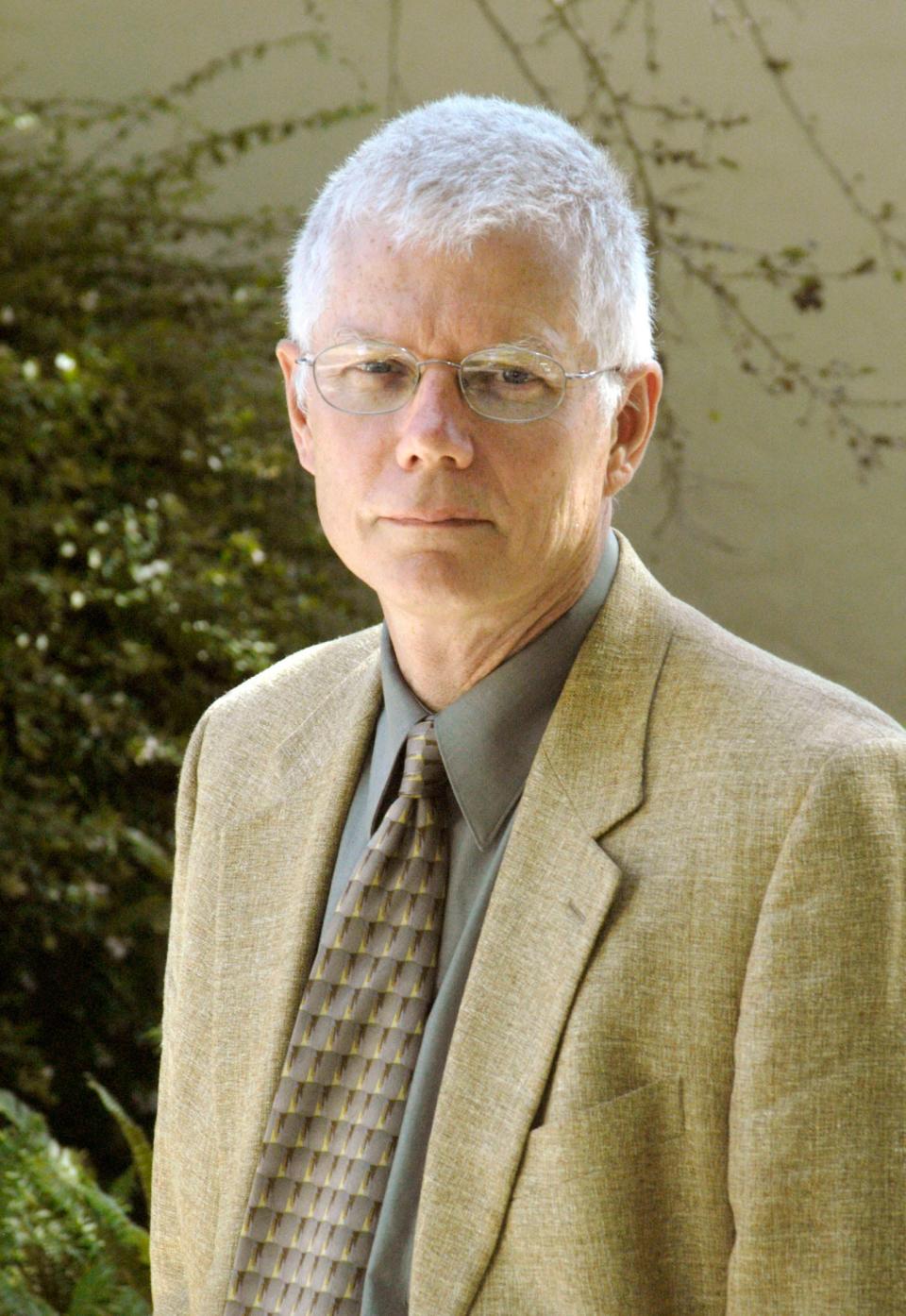
Lee was hired in March 2010 to act as a "change agent" for the College of Professional Studies, whose previous dean did not provide enough direction for the departments, Robert Snyder, Humboldt's then-provost and vice president of academic affairs, said in his statements to Title IX investigators in 2016.
Lee brought two decades of experience from four universities, including the previous three years as dean of the education school at Pacific Lutheran University in Washington. As part of his offer to join Humboldt, Lee was granted retreat rights to a "permanent, tenured" position as a professor in the education school, his appointment letter shows.
Lee oversaw the college's eight schools and departments, including education, business, nursing and psychology, and more than 270 faculty members and 500 student assistants.
Over the four years they worked together, Snyder heard a number of complaints about Lee's "management style," according to Snyder's statements. Among them: Lee was overly critical toward colleagues, particularly with department chairs; he strictly adhered to the chain of command; he was not flexible; and he gave unclear directions.
None of those complaints, according to Snyder's statements, rose to the level of a hostile work environment.
But a dozen current and former professors and administrators told USA TODAY they witnessed or experienced behavior from Lee that crossed a line into bullying or abuse. Three said they complained directly to Snyder. At least two explicitly complained of a "hostile work environment" in letters they submitted to administrators.
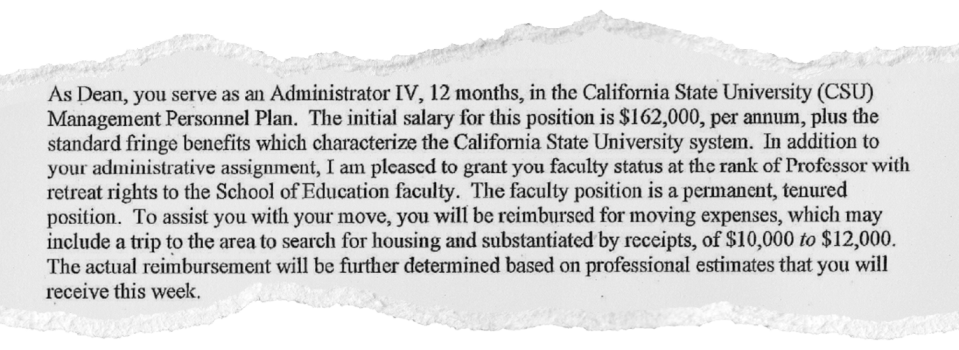
Lee "used to routinely scream at me in my office," said Martha Libster, who was hired at the same time as Lee to chair Humboldt's nursing program. Lee "threatened" Libster's job and berated her over work issues that he claimed would cause her "demise" and "ruin" her career, she wrote then-President Rollin Richmond in a November 2010 letter she shared with USA TODAY.
Libster asked Snyder to mediate a meeting between the two of them, but Snyder declined, she told Richmond. She cited Lee's and others' "hostility and accusations" toward her in her resignation letter to Richmond that month.
Another employee told Snyder in late 2012 that a heavily intoxicated Lee verbally abused two colleagues during a holiday party at Lee's home. Tasha Souza, who now works at Boise State University, said Lee confronted her in his living room, got in her face and insulted her, telling her she was not "special" and repeatedly yelling, "You suck!"
Lee berated a male professor at the same party, calling him "the pretty boy of the college" and hurling expletives, the professor told Title IX investigators. People at the party told USA TODAY they saw Lee pounding two fingers into the professor’s chest. The professor did not know what prompted the outburst, he said in his statements to investigators.
A few days after the party, Lee came to the professor's office to discuss the incident but did not apologize, the professor's statements show. Lee invoked his Chicago roots, saying to "mess with each other" is the "Chicago way."
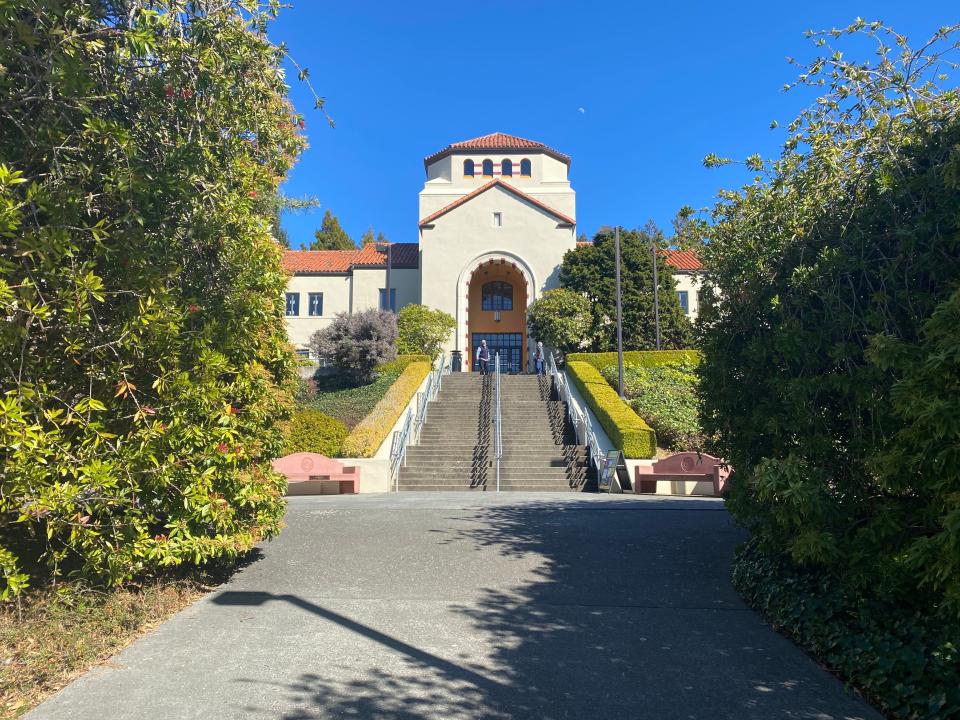
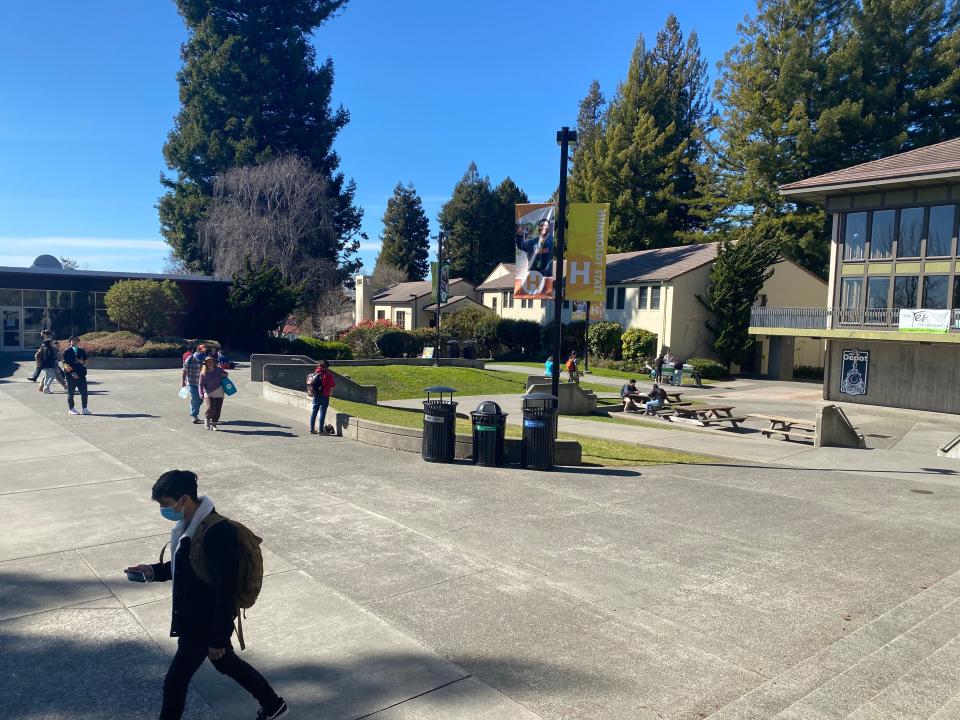
Around the same time, the chair of Humboldt's education school submitted a 12-page memo to a human resources official that described a pattern of "disturbing interactions" she and other department chairs had with Lee over two-and-a-half years that she perceived as hostile, erratic or retaliatory, according to a copy of the memo obtained by USA TODAY.
USA TODAY contacted the retired chair, who confirmed the accuracy of the memo but declined to comment on the record. Her statements to Title IX investigators matched her account in the memo, in which she sought help filing a formal HR complaint and stated her refusal to meet with Lee one-on-one or in chair meetings going forward.
“Dean Lee has created a climate of fear and intimidation resulting in a serious morale problem in the College of Professional Studies,” the Nov. 17, 2012, memo said. “It is impossible to have a successful collegial relationship with an administrator who seeks to control through intimidation, threats, fear, and demands. The degree of abusiveness he has exhibited to me is unacceptable.”
A week later, David Bugbee, Humboldt's then-HR director, wrote back, saying HR would not investigate her concerns because they "do not constitute discrimination or harassment within the meaning of Title IX or the discrimination grievance procedures set forth" in CSU's collective bargaining agreement with the faculty union, a copy of the letter she shared with USA TODAY shows.
Bugbee referred her concerns to Snyder, who told the chair he would investigate them but not fire Lee, according to her statements to Title IX investigators. Snyder, she said, gave her an ultimatum: Continue meeting with Lee or resign as department chair and from the three search committees she chaired.
The chair believed Snyder was retaliating against her for blowing the whistle about Lee, her statements to investigators show. "Feeling even more vulnerable and demoralized," she told investigators, she resigned from all her chair positions. She retired from Humboldt early in spring 2013, leaving four years of salary on the table to avoid Lee. She said she felt administrators would not protect her from him.
Snyder retired one year later. In one of his last acts as provost, he added a five-sentence addendum to Lee's appointment letter, according to a copy obtained by USA TODAY through a public records request.
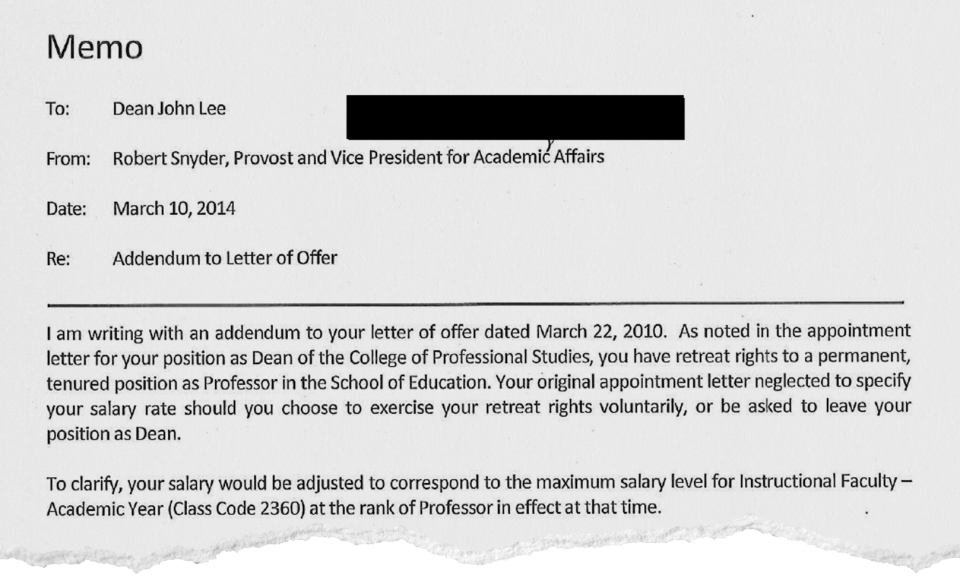
Dated March 2014, the addendum said Lee’s original offer letter had "neglected to specify your salary rate should you choose to exercise your retreat rights voluntarily, or be asked to leave your position as Dean."
"To clarify," Snyder wrote, "your salary would be adjusted to correspond to the maximum level salary for Instructional Faculty ... at the rank of Professor in effect at that time."
‘Your boss just grabbed me’
Complaints that Lee mistreated colleagues continued hitting the desks of administrators, including Jenny Zorn, Humboldt’s interim provost who succeeded Snyder, investigation records show. One such complaint came from Lee’s associate dean, who accused him of sexual harassment.
The associate dean in May 2015 handed Zorn her resignation letter, which stated she "cannot work effectively for the university under" Lee, a copy of the letter she shared with USA TODAY shows. The letter cited Lee’s "aggressive" interactions with colleagues that she said "sabotage" the college’s goals. She stated her intent to retreat to her tenured faculty position.
Zorn convinced her not to resign and to instead file an HR complaint, the associate dean told Title IX investigators and USA TODAY. That June, investigation records show, the associate dean met with then-senior associate vice president and HR director Colleen Mullery and disclosed that Lee had sexually harassed her and a female professor a year-and-a-half earlier.
The incidents took place on a Friday night in December 2013 during a work party at the associate dean's home, case records show. About 70 Humboldt faculty, staff and acquaintances attended, including Lee, who drank so heavily he struggled to stand upright, three people who attended the party told investigators and USA TODAY.
Early in the party, the professor was conversing with other faculty members in the living room when an intoxicated Lee got close to her and put his hand on her back and shoulder. According to her statements to investigators and USA TODAY, Lee pulled her toward him, slid his hand down her side, grabbed her breast and tried to kiss her.
The professor pulled away and immediately told the associate dean what happened. The associate dean described her as "visibly upset, shaking" and "furious."
"Your boss just grabbed me!" the professor said.
The associate dean was mortified, she said, but busy hosting. About two hours later, the associate dean walked in the garage, which had been converted into a dance floor, lit only by Christmas lights and a disco ball. People were dancing. Loud music was playing.
She sat down in a bank of folding chairs against the wall. Lee sat next to her, put his arm around her shoulder, pulled her close and tried to kiss her, she told investigators and USA TODAY. Lee ran his hand over her breast, she said, and across her waist and buttocks.
The associate dean pulled away, she told investigators and USA TODAY, but struggled to free herself from Lee’s grip. When she managed to get up, Lee pulled her back down using both hands, she said, and continued trying to kiss her. The whole time, she said, Lee fondled her while repeating, "I really like you," and "You are really great."
When she pushed Lee off her, the associate dean left the garage and described what had happened to her husband, who was "extremely upset," according to her statements to investigators. They decided not to boot Lee from the party, she said, because he was her boss and they did not want him to cause a scene.
The associate dean never discussed the incidents with Lee, who acted as if they never happened, she said. For months, she was content to do the same.
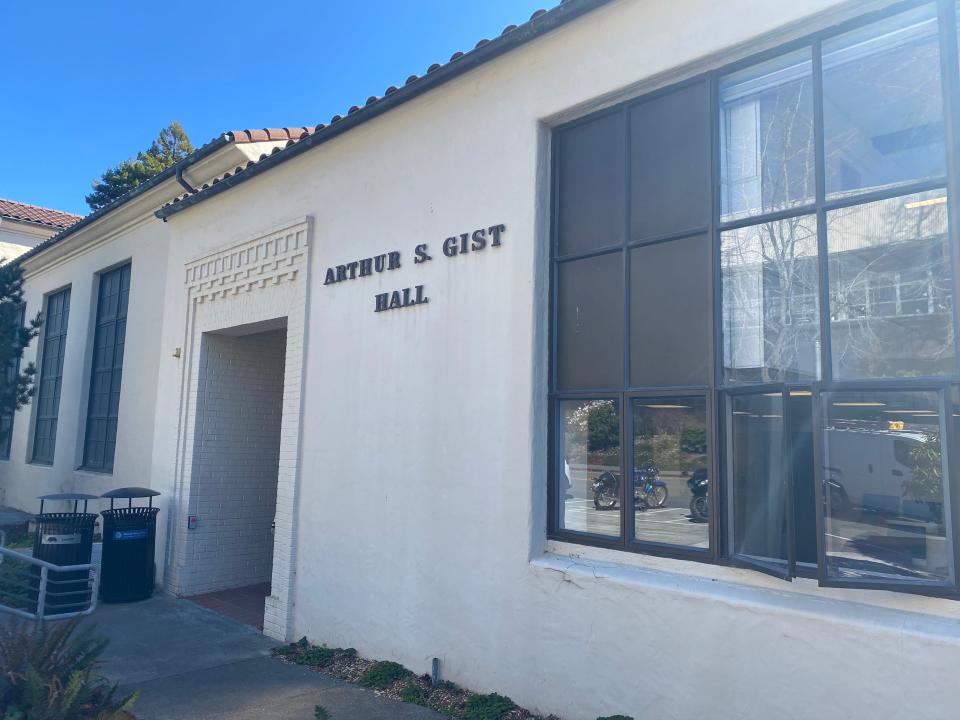
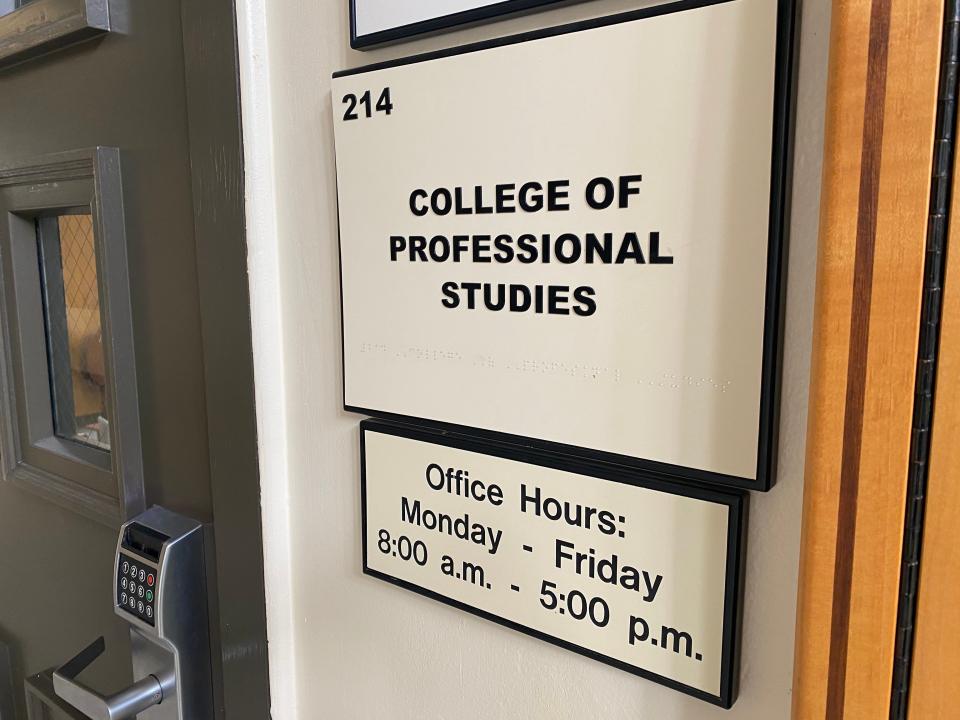
Her career in university administration was in Lee's hands, she told investigators and USA TODAY. She was Lee’s interim associate dean at the time and needed to stay in his good graces for a shot at the permanent position, for which she was applying. Opportunities in administration were rare, she said, and she aspired to be a provost or president.
Lee awarded her the permanent job in March 2014. But his repeated acts of abusiveness and retaliation threats toward her and other colleagues, she said, prompted her to write her resignation letter to Zorn a year later.
The HR complaint she filed at Zorn’s encouragement was at least the fifth Humboldt administrators had received describing hostile and bullying conduct by Lee toward colleagues, USA TODAY found. According to the associate dean, Mullery – who also served as Humboldt's Title IX coordinator – seemed willing to investigate only Lee’s groping.
Realizing Title IX was probably her only recourse, the associate dean filed a formal sexual harassment complaint against Lee in July 2015, case records show. That set the university's investigation procedures in motion.
Mullery conducted the initial inquiry. CSU later hired an outside investigator, Thomas Hauser, to reinvestigate after Lee accused Mullery of bias. Both investigations found Lee responsible for violating the university's Title IX policy.
No one witnessed Lee’s alleged sexual harassment of the associate dean in the garage, investigation records show. But the professor confirmed to investigators that Lee groped her at the same party and tried to forcibly kiss her on three occasions – twice at the party and again five months later, at a retirement party for Snyder in May 2014. The professor’s husband told Title IX investigators and USA TODAY he witnessed one of the incidents and had to shove Lee off his wife.

Mullery and Hauser interviewed at least 10 other current and former Humboldt employees, several of whom said they had seen Lee drink heavily during social events or bully or verbally abuse colleagues, their statements to investigators show.
Lee "mounted an extensive and vigorous defense which attacks the credibility of the evidence offered by" the women, then-CSU system-wide Title IX officer Pamela Thomason wrote in her June 2016 denial of Lee’s appeal that cemented the findings. "The evidence offered by Lee does not compel a different credibility determination. The campus’s findings are supported by the evidence."
Alexander Enyedi, who started as Humboldt’s provost midway through the Title IX investigation, removed Lee as dean in July 2016 and placed him on paid administrative leave for three months, according to the nonretention letter he sent Lee, which USA TODAY obtained through a public records request.
The July 11, 2016, letter informed Lee of his "right to retreat to the faculty as a tenured Professor" in the school of education. Enyedi gave Lee two weeks to decide if he would exercise those rights.
"If you elect to exercise retreat rights," Enyedi's letter said, "your assignment for the next three months is to prepare for your return to teaching on January 11, 2017."
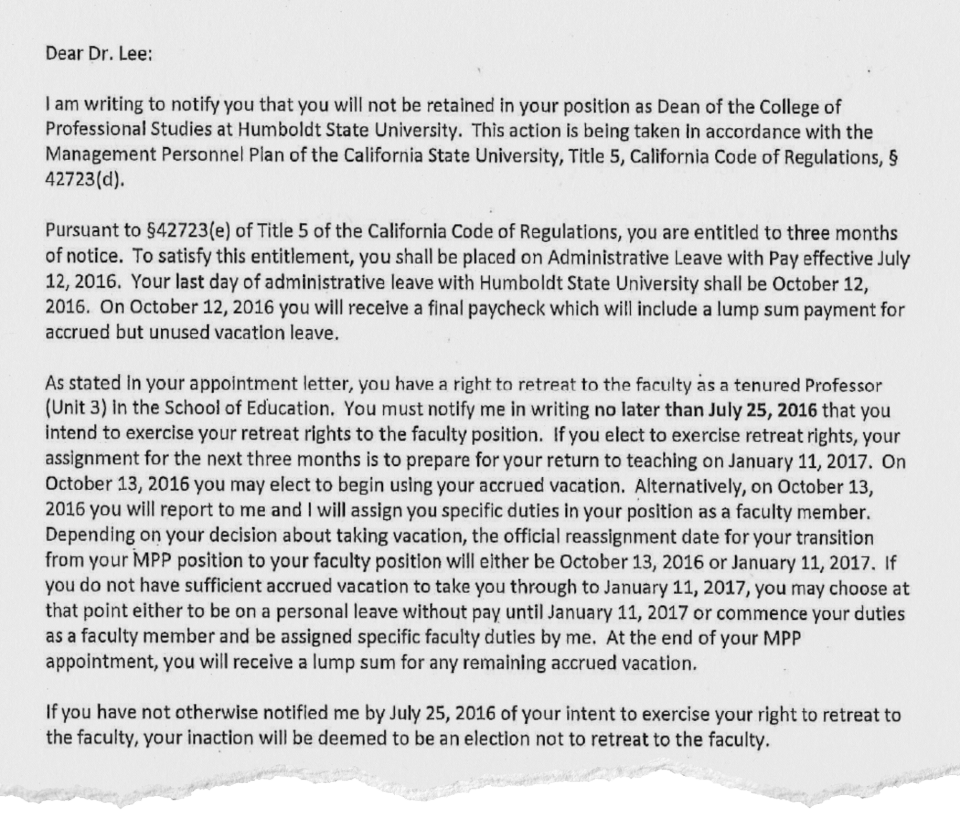
Retreat rights raise claim of ‘double jeopardy’
Faculty members who knew about the Title IX case said they were stunned when Lee returned from administrative leave and began teaching classes for aspiring K-12 educators.
"It's bad enough that they're not protecting adult women on this campus, but you're putting students in direct fire," Julie Alderson, a Humboldt art history professor, told USA TODAY. "It is not acceptable. It is actually absurd."
In response to questions from USA TODAY, Scott-Goforth, Humboldt's spokesperson, said the school has received no additional "substantiated complaints" against Lee since his return to the faculty. He declined to say if the school received complaints about Lee that it did not investigate or substantiate.
Chris Aberson, a Humboldt psychology professor, said the school shouldn’t need to wait for another incident to take action.
"These are fireable offenses," Aberson said. "It's horrible. Is he still engaging in these behaviors?"
State law – Education Code 89535 – says any permanent university employee can be fired for "immoral conduct" or "unprofessional conduct," among other things.
But because of Lee’s retreat rights, CSU attorneys believed completely severing ties with him would be an improper form of "double jeopardy," because they would have to fire him once as an administrator, then again as a faculty member, Scott-Goforth, Uhlenkamp and Hamm told USA TODAY.
Those officials also blamed CSU’s collective bargaining agreement with California Faculty Association, the union representing faculty members. According to the officials, CFA’s interpretation of the contract prevents the university from disciplining faculty members for conduct that occurred before they joined the faculty.
"Shouldn't the university be free to take action to appropriately mitigate, if not eliminate, the risk? We believe so, but we are also mindful of the likelihood that the arbitrators who hear CSU faculty discipline cases or courts may disagree and order reinstatement and back pay to a faculty member who is dismissed or denied the right to retreat because of conduct they engaged in as an administrator," Uhlenkamp told USA TODAY. "It's complicated, and we don’t like our options in these rare but difficult situations, which is precisely why we are placing conditions on retreat rights going forward."
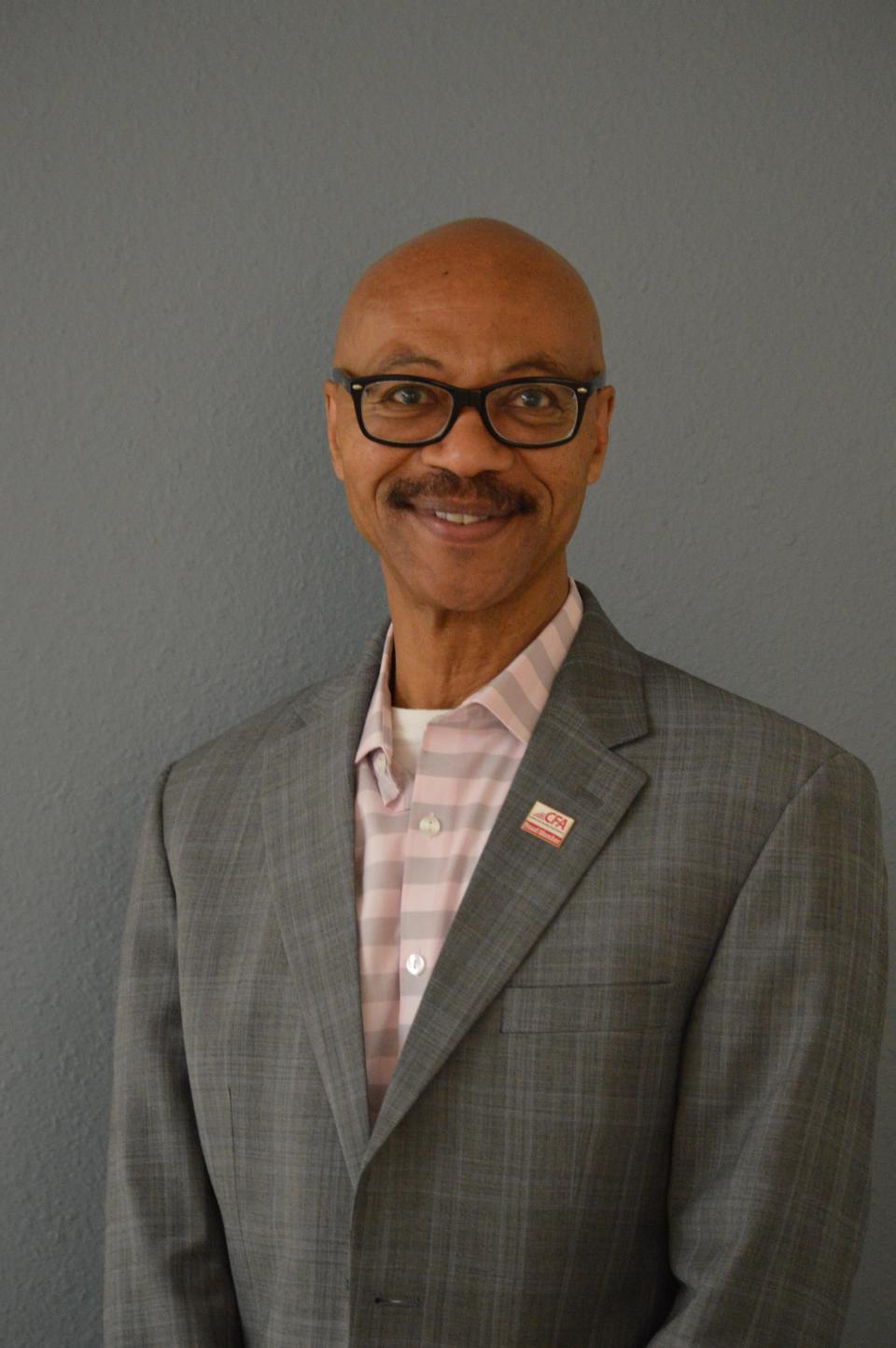
Retreat rights are a CSU problem, not a CFA problem, CFA President and San Diego State professor Charles Toombs told USA TODAY. The university has disciplined faculty for pre-employment conduct, Toombs said, and he was unaware of any instances in which CFA was put in a position to defend a faculty member facing discipline for misconduct as an administrator.
The university, Toombs said, needs to stop awarding retreat rights to administrators who never held a CSU faculty job, including Lee, Lamas and Castro, who was granted a tenured faculty job at Fresno State in 2013 when he became campus president.
"CSU administrators would rather shift blame to absolve themselves of wrongdoing and harm that their actions cause than hold bad actors accountable," Toombs said. "Management has shown that it is willing to protect abusers, failing survivors of sexual and gender violence. We, as faculty, have nothing to do with retreat rights, and CSU executives deflect so they can wash their hands clean of their own mess."
After Lee's return to the faculty, the women he was found to have groped met with Humboldt's campus attorney to determine what the school could do to protect them from Lee, they told USA TODAY. In sexual harassment cases under Title IX, schools can restrict credibly accused perpetrators’ access to certain areas of campus and events, order them to undergo counseling and additional training and issue no-contact orders, among other things.
According to the women, the university offered them none of those options. Pressed by USA TODAY, Scott-Goforth did not name a single measure Humboldt took to protect women on campus from Lee, other than making him complete the same Title IX training course required for all Humboldt employees.
Scott-Goforth declined to answer why Snyder amended Lee's contract in 2014 to ensure he would receive the maximum salary upon retreating and why Lee received a $30,000 pay bump in 2016, the same year the Title IX investigation found him at fault. Lee made more than $195,000 that year, payroll records show.
Humboldt's current administration is not privy to the details of how Enyedi, Snyder, Mullery and other former Humboldt administrators handled complaints against Lee, Scott-Goforth said.
USA TODAY attempted to contact Snyder by email but got no response. After this story published, Synder reached out to USA TODAY to say he no longer checks that email account and did not receive the messages. He declined to comment.
Mullery and Enyedi, who left Humboldt in 2020 to become president of State University of New York’s Plattsburgh campus, declined to comment.
Two weeks after he removed Lee as dean, Enyedi appointed the associate dean who filed the Title IX complaint as his interim vice provost. After her one-year appointment finished, she informed him she wished to retreat to her tenured faculty job, a letter she shared with USA TODAY shows.
Enyedi asked her to apply to be interim dean of the College of Professional Studies in January 2019, emails she shared with USA TODAY show. After initially expressing interest, she declined Enyedi's offer two days later, saying she would be "reliving that trauma every single day of my life" if she became dean.
"I realize now that I can't apply," she wrote, "and that John Lee wins."
Kenny Jacoby is an investigative reporter for USA TODAY. Email him at kjacoby@gannett.com and follow him on Twitter @kennyjacoby.
This article originally appeared on USA TODAY: Cal State admins can retreat to teaching jobs after serious misconduct

